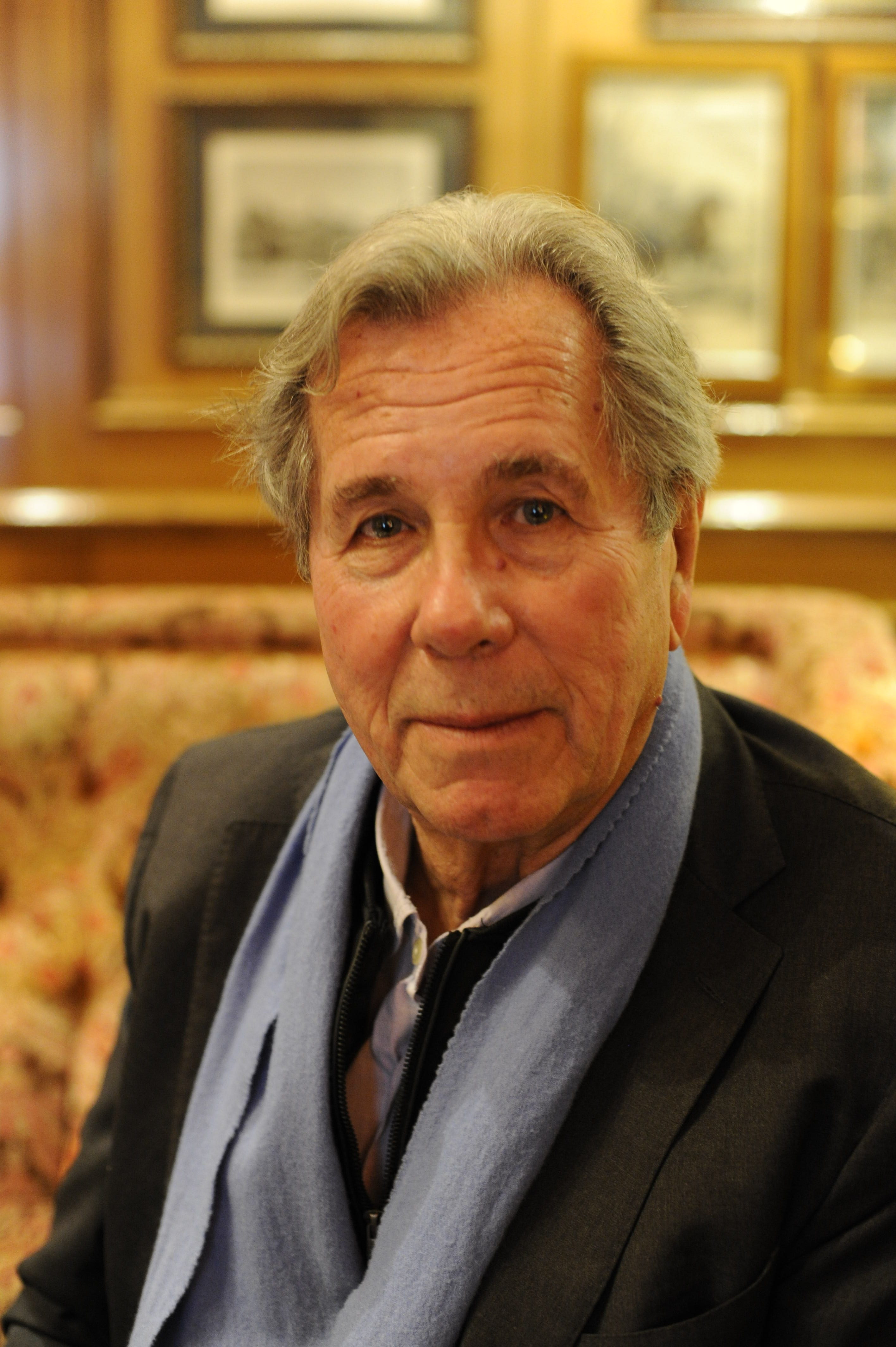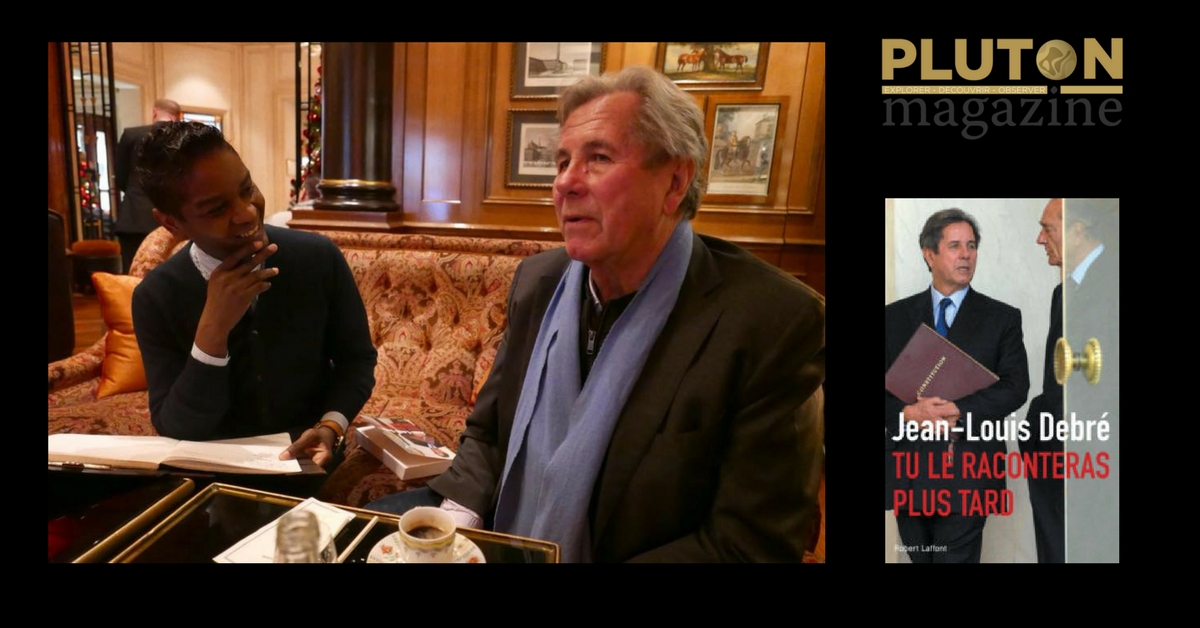High-Profile: Jean-louis Debré
 Deputy, Minister, President of the Assemblée Nationale, President of the Constitutional Council, politician and accomplished writer, Jean-Louis Debré is definitely one of the most influent person on the French political scene. On the occasion of the release of his latest book, which is a big deal at the moment, Tu le raconteras plus tard, published by Robert Laffont Editions, we met him for our High-Profile series.
Deputy, Minister, President of the Assemblée Nationale, President of the Constitutional Council, politician and accomplished writer, Jean-Louis Debré is definitely one of the most influent person on the French political scene. On the occasion of the release of his latest book, which is a big deal at the moment, Tu le raconteras plus tard, published by Robert Laffont Editions, we met him for our High-Profile series.
We met this atypical and endearing person in the quietness of the Four Season George V Hotel tearoom where we had an appointment. There’s no time but the right time. At 3PM sharp, as agreed, Mister President comes to us and has a sense of humour.
“What do you want from me?, he says.
I receive the question with a smile because politics are a bit like a theatre stage. The introduction is in the keeping with the event and, having read the book, we know mister Debré’s freedom of speech and straight-talk.
That’s why I answer: “We want you to tell us about your childhood and your carrier”.
His childhood was normal and rather quiet. His father was a politician but Jean-Louis wasn’t meant to become one. It was after a meeting with General de Gaulle that he committed in politics. Law studies lead him to magistracy and he sat 15 years as an investigating judge handling organised crime and terrorism cases.
After 15 years, I decided to commit in politics, as democracy and the Republic don’t take the differences into account. This is a republican commitment and above all a desire to serve my country.
He ran in elections and got elected. He became friends with Jacques Chirac. He became his collaborator and his Minister of Home Affairs. And let’s not forget that Mister Jean-Louis Debré ran for and got the positions of President of the Assemblée Nationale and President of the Constitutional Council, as we said before.
Jean-Louis Debré also wrote detective novels and various books about the Republic.
His detective novels are inspired by his magistrate and investigating judge carriers, during which he had to handle several important cases. He also wrote about the history of his country, the history of the Republic and the forgotten people of the Republic (cf. Dictionnaire amoureux de la République). And when we listen to him talking about his work, we can feel the passion of writing.
Jean-Louis Debré tells us that he writes every evening. He considers this exercise like a jogging. One hour of writing every evening, it’s like one hour of intellectual jogging.
During his carrier, he met a lot of famous people: Alain Juppé, Jacques Chirac, Nicolas Sarkozy, Dominique de Villepin. This is the reason why he quotes this extract from his latest book Tu le raconteras plus tard:
In politics, there are a lot of copies but few originals.
Tu le raconteras plus tard
When he decided to write this book about the political world described with a great freedom, he didn’t hesitate to send the manuscript to Jacques Chirac who trusted him and approved without actually reading the book. But because he knows him well, Jean-Louis Debré called him back and told him about various extracts quoting him. After this conversation, Jacques said “You’ll tell this later” (“Tu le raconteras plus tard” in French). So Jean-Louis Debré put the manuscript aside to publish it later. And if you were wondering about the title of the book, you now have the answer.
The Assemblée nationale
When I asked him about his worst memory at the Assemblée Nationale, Mister Debré focused on the bright side and preferred talking about his best memories.
First, he talked about his election, much to everyone’s surprise, as President of the Assemblée Nationale, when he beat Edouard Balladur. He says it was the confirmation of what he was. The former Prime minister was beaten because he wasn’t elected by the people but by civic leaders.
Second best memory.
The effigy of Marianne in front of the Assemblée Nationale, the Marianne of diversity. Marianne is the unifying symbol of the Republic. No-one really expected it.
The third best memory was the French-German Friendship Treaty. German and French deputies gathered in Versailles. Both countries had historical confrontations. There couldn’t be a Europe without reconciliation. It was great moment and a memory he still remembers.
The Constitutional Council.
When he arrived, the Council was making 10 rulings a year. When he left, this number had risen up to 180. These numbers sum up all the work done. And he is proud he took part to the defence of the constitutional freedom of our country.
Family
I inherited the Republic and I descend from a Jewish great-great grand-father.
The Republic gave his parents a civil status and he is thankful for that.
I come from a family who was friends with a painter who was friends with Émile Zola (Dreyfus). My family was in the Resistance during the war.
I’m the result of all this and it’s great to have a chance to share this. It’s not difficult to be who I am. I’m happy.
About terrorism:
After terrorist attacks, it was necessary to look for the truth and to avoid amalgams. Reality relies on facts and not on media manipulations. We have to face the fact that behind terrorism, the goal of Islamists is to destroy laicity. The goal of a religion is not to mould individuals.
Terrorism wants us to recognise there is only one religion and uses terror to impose its vision of the world.
The role of the republican State is to guarantee the rights and freedoms.
The role of the Republic is to reduce inequalities, guarantee security, education and training.
Full-face veils don’t match republican values. This is why Jean-Louis Debré has always refused to talk in presence of such clothing.
About Europe
To build Europe, we need tax harmonisation and labour law harmonisation. The single currency is what it is. It’s real and we must get used to it but it isn’t normal to see citizens settle in other European countries to escape taxes.
As always, at the end of the interview, there’s a little questionnaire for our guest.
A dream: Act in a theatre play or in a film. Politics are a show.
Gastronomy: I’m happy with pasta and a little basil and olive oil.
I love spice. I put spice on everything.
I love lamb carry from the Réunion Island and I’m fond of sauerkraut.
![]()
Dominique Lancastre (CEO Pluton-Magazine)
Gostranslate Belgium
Pluton-Magazine/2018
Photos Takeko Fujisawa

